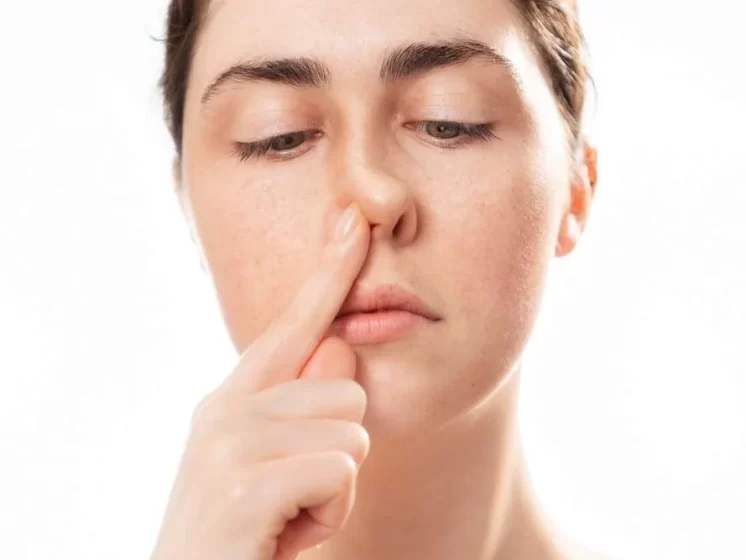Does voice change after Nose Surgery? – Must know for Singers

Surgery called Rhinoplasty is used to alter the nose for aesthetic or practical purposes. Another name for the surgery is a “nose job.” Rhinoplasty can be done on patients who have breathing issues brought on by structural irregularities in the nose as well as those who are dissatisfied with the way their nose looks because of its size, shape, or symmetry.
Depending on the amount of the necessary adjustments, the surgeon will either create an incision within the nose or one outside the nose during the treatment. Rhinoplasty patients generally endure bruising, swelling, and discomfort for one to two weeks following their procedure. In order to protect their nose while it heals, they might also need to wear a cast or splint.
While rhinoplasty is a common treatment, it does have dangers, much like any surgical procedure. Before electing to get the operation, patients should carefully weigh the potential advantages and disadvantages of doing so. To get the greatest results, it’s crucial to select a qualified and experienced surgeon who specializes in rhinoplasty.
Voice After Rhinoplasty – An Important Question for the Opera Singers
Prior to exploring the potential impacts of rhinoplasty on voice, it’s critical to comprehend how the nose and voice are related. Since it is involved in both breathing and sound resonation, the nose is crucial in the production of voice.
Air passes through the nasal passages and into the lungs while we breathe. The mucous membrane-lined nasal cavity warms and humidifies the air before it enters the lungs. This is crucial for singers since the type of air that enters the lungs might impact how their voice sounds.
Sound resonance also involves the nose. The vocal cords in the larynx create sound waves when we talk or sing. The structures in the throat, mouth and nasal passageways then amplify and shape these sound waves as they move through them. The size and form of the nasal cavity can have an impact on the resonance of sound, which in turn can have an impact on voice quality.
Rhinoplasty Voice Effects
The voice may be impacted by rhinoplasty in a number of ways, including:
1. Airflow through the nose can change as a result of rhinoplasty because it can change the size or shape of the nasal passages. This might have an effect on the voice’s quality and the air that enters the lungs.
2. Resonance changes: As was already established, the size and form of the nasal cavity can have an impact on the resonance of the sound. The shape of the nasal cavity may change as a result of rhinoplasty, which may impact the voice’s resonance and tone.
Following rhinoplasty, the nose may be bloated and inflamed, which can impact how air flows through the nasal passages and impact one’s health.
Opera Singers’ Considerations
The voice is an opera singer’s instrument, so any modifications can have a big impact on their career. Singers should carefully evaluate the potential effects on their voice prior to having rhinoplasty. Here are a few things to think about:
1. Choosing A Suitable Surgeon :- Choosing a skilled and experienced surgeon is the most crucial aspect of having a good rhinoplasty. Singers should select a surgeon who has experience in treating singers and has specialization in it.
2. Discuss Concerns with the Surgeon :- Singers should speak with the surgeon beforehand and express their worries about the procedure’s potential consequences on their voice. By avoiding some procedures or employing grafts to keep the nasal cavity’s size and form, the surgeon may be able to limit the effect on the voice.
3. Think of Alternatives :- Singers may wish to think about alternatives to rhinoplasty, such as utilizing cosmetics or prosthetics to change the appearance of the nose, if the voice’s possible repercussions are a concern.
4. Participate in vocal coaching :- Singers can require vocal coaching after surgery to help them cope with any changes in their voice. When necessary, the coach can assist singers in modifying their repertoire and learning new methods.
5. Wait Until Full Recovery :- Before starting to sing again, singers should wait for their voice to fully recuperate from surgery. Depending on the complexity of the procedure, this could take a few weeks or even months.
6. Be ready for any future adjustments :- The outcome of rhinoplasty could affect the voice, even with meticulous planning and a skilled surgeon. Singers should be ready for any changes that may occur and work with their vocal coach to make any necessary adjustments.
7. Examine the surgery’s timing :- The timing of the procedure in relation to the singers’ performance schedule should be carefully considered. The artist might need to take a hiatus from performing during the recuperation period following a rhinoplasty, which might continue for several weeks. It’s crucial to schedule the procedure so that it won’t conflict with crucial performances or auditions.
Voice is the most valuable asset for a singer. One must be very careful before going through any kind of surgery that might induce any kind of change in their voice. We want you to go through a thorough discussion with the surgeon so that you are aware of all the possible consequences. If you want to discuss regarding your personal situation in this case, you can book an appointment with one of our surgeons in your city who are professionals and ask all your queries before the surgery.